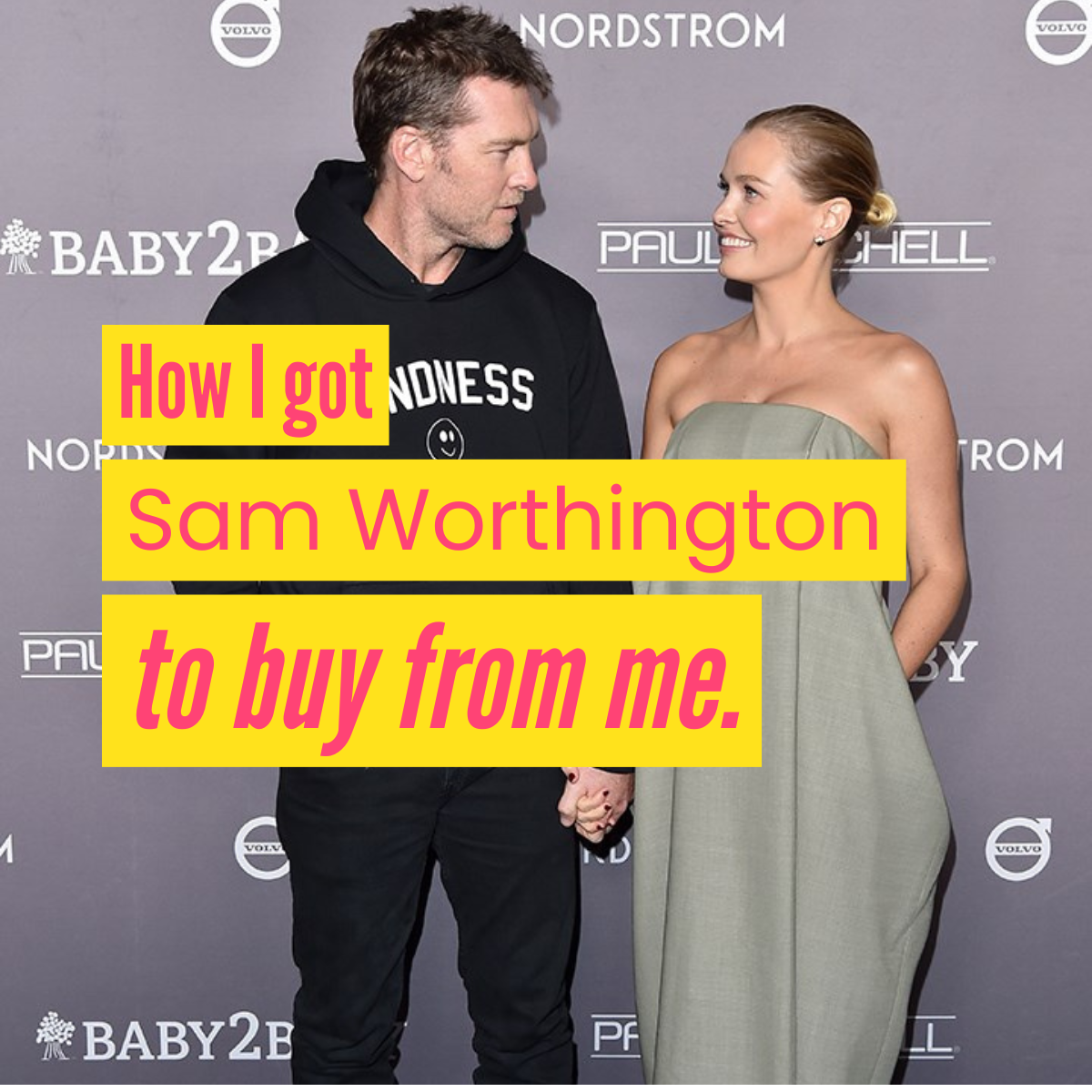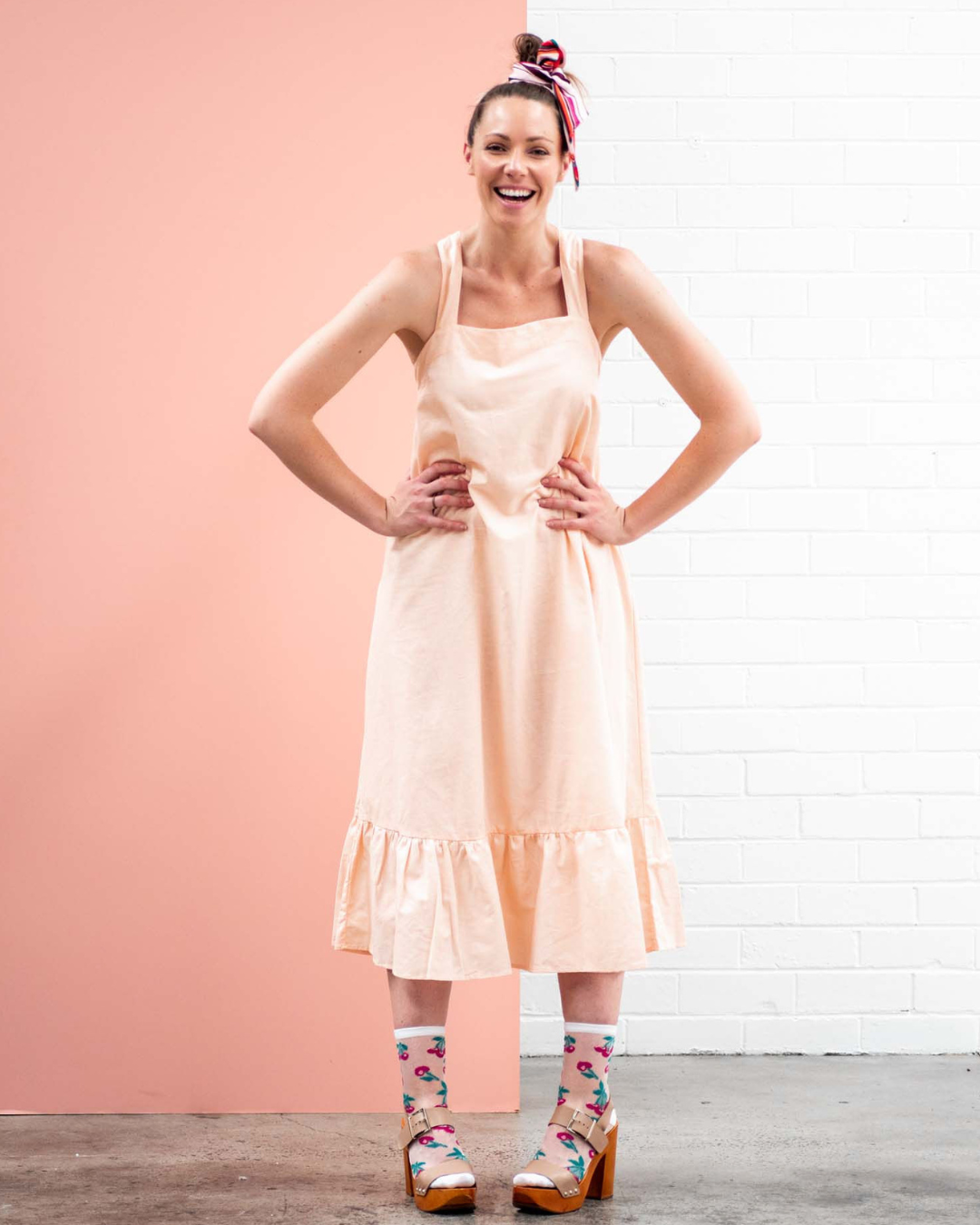Half of the world's population, which is nearly four billion people, are women. On average, women get their first period around the age of 13 and go through menopause at 65, which means we have 12 periods a year, every year, for nearly half our lives. Besides the emotions, the expense, the bloating and the cravings that come with periods, there's plastic and chemicals involved too.
Disposable pads are made with up to 90% plastic and they can take upwards of 400 years to decompose if they ever do at all. Adhesive pads haven't been around long enough to measure their impacts, and unlike food and beauty products, there are currently no Australian regulations to force brands to disclose their tampon or pad ingredients list. It's not just a health concern, but an environmental concern too, and the decomposition process of these throw-away products can contaminate our soil, air and water supplies. All the disposable pads we've tossed away since they were invented in 1970, still exist somewhere in landfill and waterways today.
I may not know everything there is to know about plastic, but I do know it doesn't belong on my bits. Sacred yoni, womanhood, flange, vajayjay, lady business, hoo-ha, cha-cha or traditional vagina; however you look at it and whatever you want to call it, the nether regions are no place for plastic. Marcus Steve and Jenny Lee agree, and as the Directors of hannahpad, they're an authority on the topic. They've engineered a sustainable and gentle alternative to plastic disposable pads, making menstruating better for your bits, and better for Mother Earth too.
Protecting Mother Earth and nurturing her people, is the founding concept of hannahpad, and it's why Marcus and Jenny are so passionate about choosing safe materials for their sustainable, ethical and certified organic cloth pads.
“The first prototype was machine sewn by Mr Jang himself, then the design was revised (and revised), and they're now made with OCS100 certified organic cotton for both the side that touches your skin and the internal layers too. This means the entire pad is certified organic, and we're proud to say that about each component that makes up a hannahpad.”
Using certified materials is important when it comes to a product as personal as cotton pads, especially when they're a reusable investment too. Being certified organic is a symbol of trust, and hannahpad's community have confidence in what they're buying. Each component of a hannahpad pad is sourced and manufactured in fair and ethical conditions, abiding by a strict quality control process, with minimal impacts on the environment. hannahpad's three core values - people’s health, the environment and the peace of mind of the consumer - have underpinned their success too.
“OCS100 Certification ensures that the end product actually contains 95-100% organic material. This is your guarantee that the organic cotton material does not contain any pesticides, herbicides or chemical nasties through the growing, harvesting and production process.”
When we're aware of the process behind our products, it's easier to make the right choices for our bodies, but all too often, we're not given the information we need. Beauty products, shampoo and conditioner, the clothes we wear every day, the soap we use to wash our hands in public bathrooms, right down to the genetically modified preservatives in the convenient snacks we grab when we're in a rush; we're exposed to chemicals all day, every day, everywhere. Mainstream sanitary products contain a cocktail of chemicals, but Marcus and Jenny know that the most sensitive and intimate parts of our bodies are the very last place those chemicals should be.
“One time I travelled abroad and out of curiosity picked up a pack of pads while I was strolling through a supermarket. The first few ingredients listed were bleached wood pulp, hot melt adhesive and polyethylene liner. Companies are not required to disclose ingredients and materials within their menstrual products, so I was truly shocked at what I read on the labels overseas. In South Korea, there was a national recall on supermarket disposable pads, tampons and liners amongst fears on the negative side effects of high levels of VOC's (volatile organic compounds) such as formaldehyde and chlorobenzene.”
Formaldehyde is in one in five beauty products sold in Australia, yet it's a World Health Organisation Class 1 Carcinogenic, and it certainly has no place in the nether regions. Understanding the health implications of chemicals is easy, but making the switch to better products isn't always as simple. When we've relied on certain products for years, it's natural to be apprehensive to switch to a reusable and organic alternative, but, as with any ethical and sustainable transition, it’s important to remember that the switch doesn't have to be immediate. Try alternating between disposables and cloth pads, and you'll quickly see (and feel) the benefits of making the permanent switch to a better and organic alternative.
“Start small and build up your collection slowly. We always recommend beginning with just one tester pad, which can be purchased through our website with free shipping anywhere in Australia. If you’ve never tried a cloth pad, it’s important to experience the wear and wash of a cloth pad. From a tester pad, you can then determine whether this is the right washable solution for you. Then you may consider some of our sets or create your own collection with what you need in single pads.”
When it comes to something as personal and vulnerable as periods, we all gravitate to products we can trust not to let us down. Deep down, most women fear the inevitable possibility that at least once in our lives, we'll experience public leakage. Experiencing a period product fail is not something any of us have penned on our bucket list, so it's natural to lean towards the safety net of plastic-laden products we've been using to date.
Overcoming consumer fear is a challenge Marcus and Jenny gladly rise to, and they took great care in the development stages of their organic cotton pads, and trial-and-error tests were all part of the process. Over time, the buttons have transitioned to a 100% recyclable material, as opposed to metal clasps that could rust over time in contact with water and cleaning products. The organic cotton layers were established early on due to their softness and comfort, but working out how to create waterproof layers proved problematic. Marcus and Jenny strove for breathability, flexibility and the all-important waterproof quality, and didn't stop until they'd achieved it.
“We opted for TPU (thermoplastic polyurethane) as it is the safest, most durable and breathable product. Whilst it still is a type of plastic, it is an 'inert material' meaning there are no active compounds and is therefore unable to form any compounds that could cause the release of any toxins under normal circumstances.”
As well as creating safe and comfortable products, hannahpad prioritises the ethical implications of sourcing their materials. They maintain 'good health' in all its forms; the health of farmers, the health benefits to consumers of the final product, and less waste and energy consumption.
“By focusing on our environmental practices, we're helping create a better and brighter future of everyone and future generations to come. Choosing certified organic is about ensuring that the effects from the farming practices and production are as eco-friendly as possible and that we care for everyone and everything that coexists on Earth, near and far. Our ultimate goal is to provide the healthiest and safest reusable solution that is not detrimental to anyone’s health whilst preserving the natural wonders of the environment for future generations through low waste living ideas.”
What Marcus and Jenny have created, is nothing short of inspiring. hannahpad's washable cloth pads are biodegradable, safe, ethically made, comfortable, organic, reusable, and they actually work. Yup, I've period-tested them myself and I've never had such a good night sleep on my cycle, as I have when I'm wearing a hannahpad.
To shop hannahpad's incredibly cute range of sustainable and organic cotton pads, head to hannahpad and use TFA15 for 15% off!
The Fashion Advocate x







